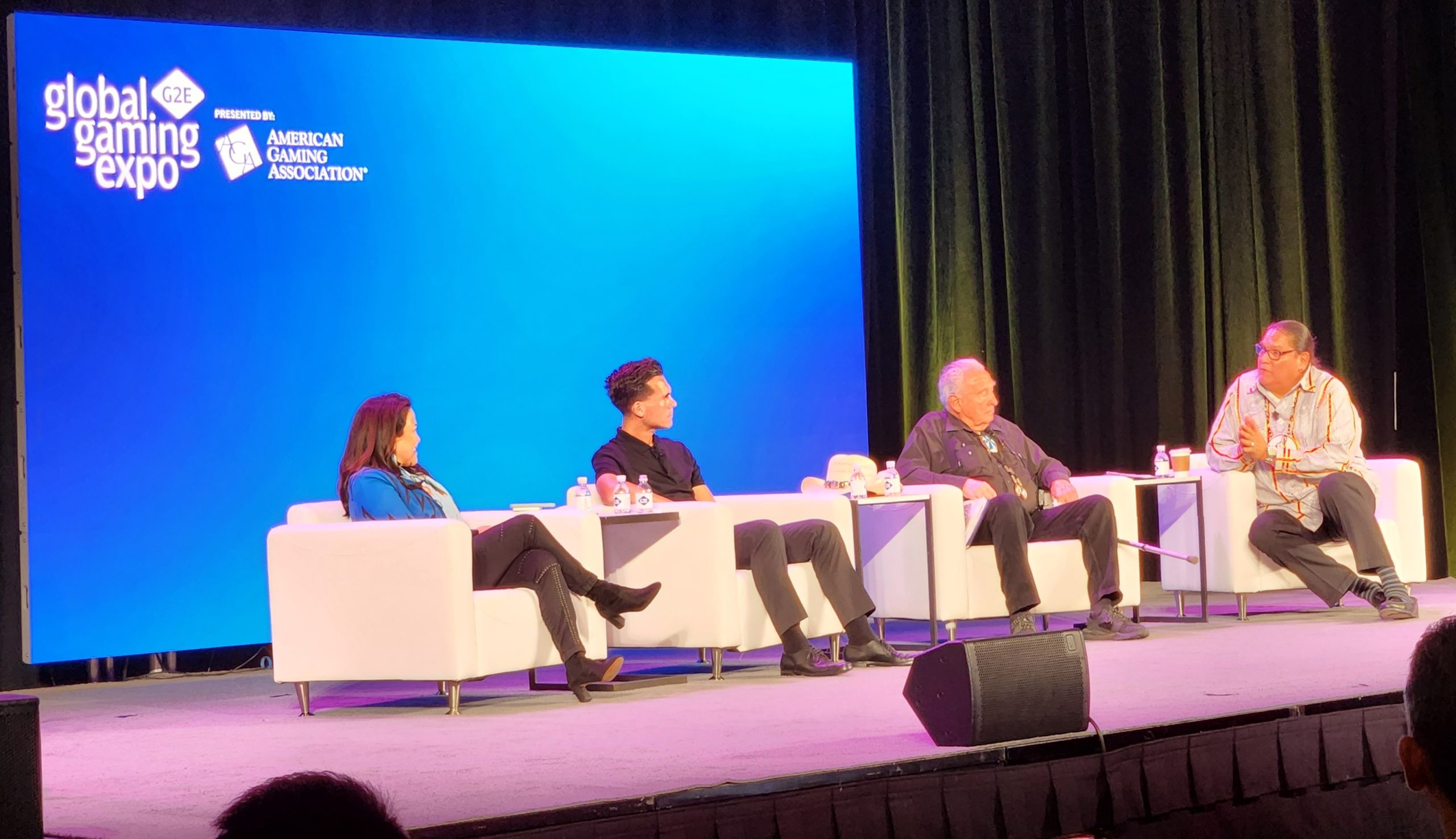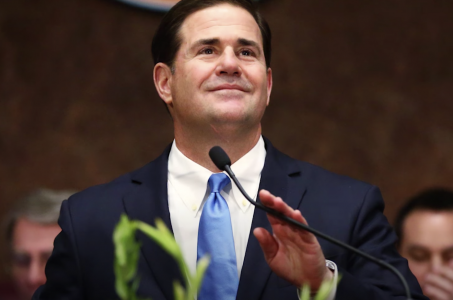G2E: On Indigenous Peoples Day, Tribal Leaders Discuss Gaming’s Impact
Posted on: October 11, 2022, 09:39h.
Last updated on: October 11, 2022, 04:26h.
LAS VEGAS – The opening day of the 2022 Global Gaming Expo (G2E) coincided with Indigenous Peoples’ Day, a holiday celebrated by Native Americans and acknowledged in several states. So, it was only appropriate that Monday’s keynote session of the annual conference examined the impact that gambling has had on tribal communities across the country.

Ernie Stevens, the chairman of the Indian Gaming Association, led a discussion with former Colorado US Sen. Ben Nighthorse Campbell, Agua Caliente Band of Cahuilla Indians Chairman Reid Milanovich, and political consultant Holly Cook Macarro. They touched upon gaming and their reflections on the holiday.
Stevens noted that the tribal gaming nations have rebounded from the COVID-19 pandemic to employing at least 300,000 workers. That’s the same number of employees before the tribal casinos had to shut down in March 2020. With that many jobs, tribal gaming is the 11th-largest employer in the country.
“Right up there with Amazon and Walmart and the rest of those folks,” Stevens said. “Good pay, good benefits, and a safe environment to work. This comeback is a resounding affirmation of the vision and approach to the pandemic taken by tribal leadership.”
Gaming Gives Tribes a Voice
Milanovich said that casino gaming, which California voters approved in 2000, has given his tribe the ability to operate its government and offer health care and housing to its members.
It’s also given the Palm Beach tribe something else, he said: a voice. For example, the tribe’s gaming operations have produced revenue needed to pursue a legal battle in the courts to protect its water rights.
It gives us the ability to protect our natural resources, to protect our culture,” said Milanovich. “It gives us the ability to hire good teams in DC that can help communicate to the United States government what our intentions are. That wasn’t always possible beforehand.”
Macarro said that gaming has helped tribes in various ways. For her tribe, the Red Lake Band of Ojibwe, gaming has allowed families to stay on native land that she described as one-third water and one-third forests and retain its tribal heritage
Her husband is Mark Macarro, who serves as chairman of the Pechanga Band of Indians in California. She said that the tribe has reaped rewards from what was first considered to be a “horrible” relocation to now becoming one of the largest tribal gaming operators in the country.
“It has really catapulted us in ways that I know my grandparents couldn’t even have imagined back in Red Lake,” she said.
Campbell Calls Gaming a Success
Campbell was a Colorado congressman in 1988 when Congress passed the Indian Gaming Regulatory Act (IGRA), which gave tribal nations in most states the ability to pursue gaming. He helped get the bill passed in the House after it was initially approved in the Senate.
While he acknowledged that gaming hasn’t helped all tribes, he said it still has been a huge success for Native Americans.
“None of us that were involved in it could have ever thought it was going to be, someday, a multi-billion dollar a year business, hiring tens of thousands, in fact, hundreds of thousands of employees, both Indian and non-Indian too, and help so many communities,” he said.
Tribal gaming produced revenues of $100 million in its first year and grew to $11 billion by the end of the last century. Last year, even as the country emerged from the pandemic, tribal gaming operations generated $39 billion.
Related News Articles
Oklahoma Tribal Casinos Broke Revenue Records in August
California College Partners With Tribal Casino For Student Housing
Most Popular
Tropicana Las Vegas to be Imploded, Tentative Date Set
VEGAS MYTHS BUSTED: Golden Gate is the Oldest Casino in Vegas
Most Commented
-
End of the Line for Las Vegas Monorail
— April 5, 2024 — 90 Comments -
Mega Millions Reportedly Mulling Substantial Ticket Price Increase
— April 16, 2024 — 6 Comments















